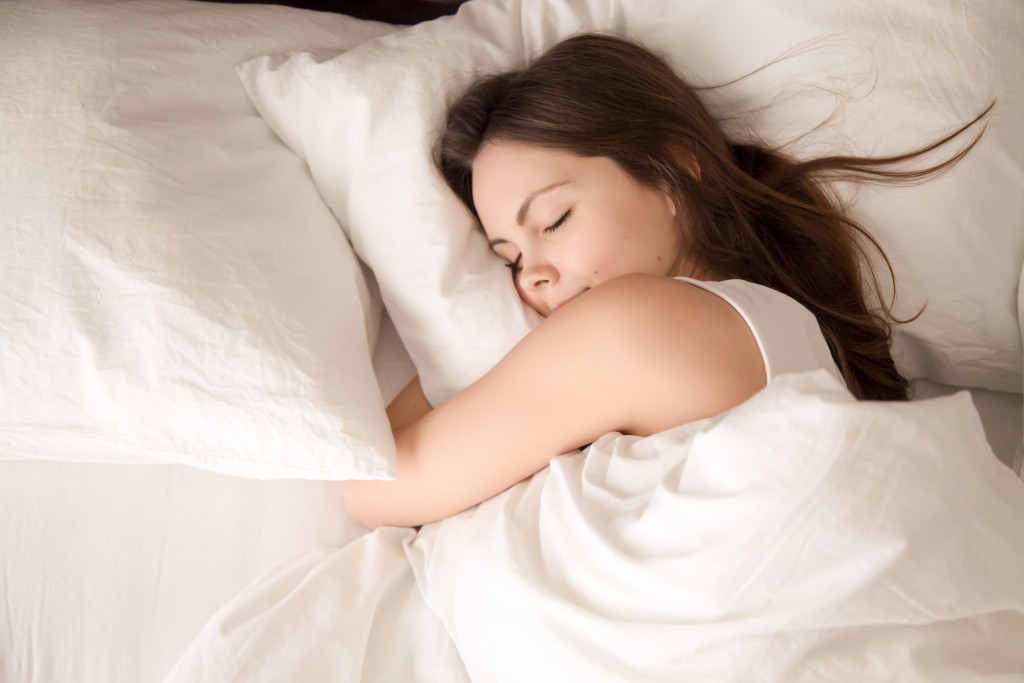Sleep directly affects your physical and mental health. When you are not getting enough of it, you lose energy, you become irritable, and you can even gain or lose weight. A lot of people suffer from this problem. Some would spend the night tossing and turning in bed, struggling to fall asleep. Others would wake up at inopportune times and find it near impossible to go back to sleep. There are several causes for this inability to sleep, but unhealthy lifestyle choices or daytime habits are the most common reasons.
Fortunately, there are several ways to sleep better. It’s a matter of identifying what’s causing the problem and finding out which solution works the best for you. With better sleeping habits, you can improve your mood and health.
Create a sleep-friendly environment.
Although some people brag about their ability to fall asleep anywhere, this throws off your body’s natural sleep cycle. Before going to sleep, make sure your bedroom is comfortable and encourages relaxation.
Sleep on a comfortable mattress.
Most mattresses have a life expectancy of seven to ten years. The support and comfort it provides depreciate over time. If it’s no longer comfortable to sleep on, it’s time to visit the mattress store. When selecting a new mattress, consider how much support it offers. Test it out if it’s comfortable and helpful in helping you fall asleep.
Control the room’s light.
It’s difficult to sleep soundly in a brightly lit room. Put up heavy or dark curtains to keep light from entering through your windows. Use a dim nightlight rather than a bright lamp. This way, you won’t have a hard time falling back to sleep after using the bathroom during the night.
Keep in sync with your sleep-wake cycle.
Your body has a natural sleep-wake cycle called the circadian rhythm. Keeping with this schedule will help you sleep better and longer.

Adhere to a strict sleep-wake schedule.
Decide on what times are best for you to get up and go to sleep. Keeping a regular sleep-wake schedule trains your mind and body to relax on time. Although this will be challenging in the beginning, continuously practicing it will turn it into a habit.
Avoid taking too many naps.
Although it’s tempting to take a nap when you feel tired, this will make it harder to fall asleep at night. Try limiting naps to 15 to 20 minutes. This gives you enough time to recharge without affecting your sleep-wake schedule. Additionally, keep your naps in the later morning or early afternoon. Late afternoon and early evening naps will make sleeping at night harder.
Rest your eyes before going to bed.
The blue light used in smartphones, computers, and TVs is considered a sleep disruptor. Avoid using these devices at least an hour before going to bed. If you have to use them, turn down the brightness to reduce its disruptive properties.
There are several ways to improve how you sleep at night. By experimenting with these tips, you can identify which ones are the most beneficial to you.
